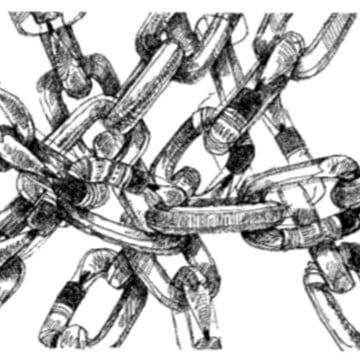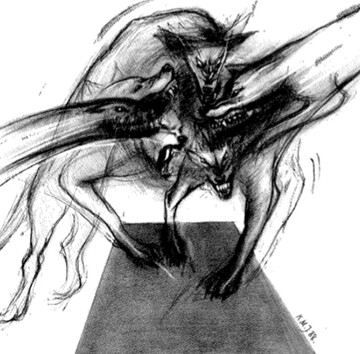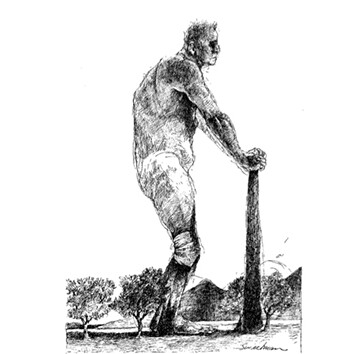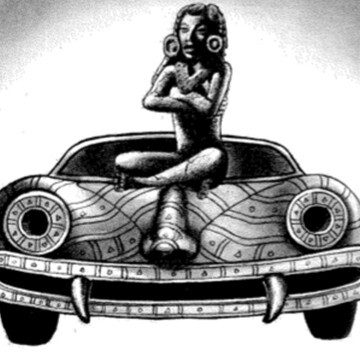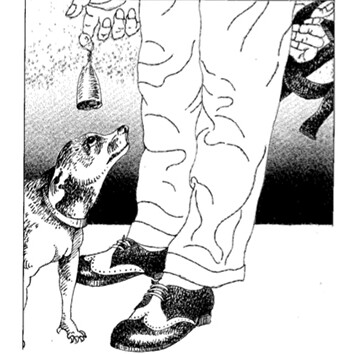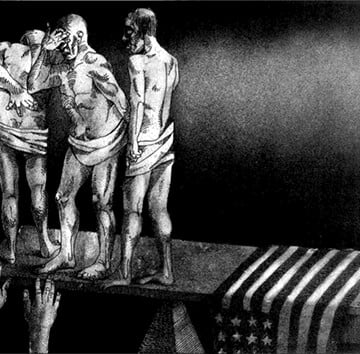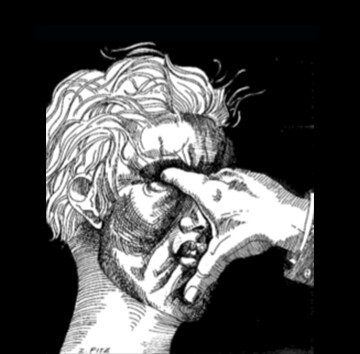We saw them at dawn: a dozen men in ragged camouflage, lugging dull black weapons glinting like poised snakes. Their faces rugged like Arizona bluffs, dark brown or brick red, they moved without a sound, like the mist rolling out of the forest. Large and beefy, they stood around our campfire and smiled at us....
Author: Momcilo Selic (Momcilo Selic)
The Serbs of Ozren Mountain
“Let me marry / Or buy me a banjo / For I must pluck / At something!” sings Milosli Dragichevitch, a Serb from Ozren Mountain in Bosnia. Milosh is a 50-year-old whose eyes twinkle darkly as he laughs at jokes about Serbs and Turks, made up by someone diabolical, somewhere in Bosnia. “Two Red Berets,”...
Notes From the Front, Part II
Basically, the Yugoslav problem is simple: it is a war of vanities, of various ethnic and religious groups vying for supremacy. If this sounds familiar to American and other Western readers, the parallel is intentional: after all, it was Tito, the arch-communist, who first implemented the New World Order of former President George Bush, of...
Notes From the Front, Part I
In the twilight, the machine gunner holds aloft the dissembled barrel of his weapon, his hands oily and stained, and grins at me. White-toothed, red-haired, he wears his beret like a bonnet. Cocky, not too large, he laughs, then swears a heavy, loaded Serbian curse, unsparing of the Croats. The machine gunner is a Kraina...
Writers’ Unions
“PEN international is working for your release,” my lawyer told me. In the bare, mean interview room of the Belgrade District Prison he smiled at me, and I smiled back, because the mikes could not pick that up. There were no TV cameras there, yet, to monitor our winks and nods—the language of slaves, as...
A Dirge For Bosnia
“Whom I served—by him I was buried!” —14th-Century Bosnian Inscription “For now I began to get the news from Croatia,” wrote Mrs. Ruth Mitchell, an American in Dubrovnik, in May of 1941. “I could not believe a quarter of them. Unfortunately, I was soon to know that they were a weak understatement of the truth....
Execution
Vukota Vlahovic said to his mother, “I am a grown man.” But his mother just smiled. “You are a boy until you marry. Even then you will be my son.” “God be with you,” she said, as he walked away without looking back. His pouch filled with bread and cheese, Vukota Vlahovic went down Trmanje,...
On Might
“I chant the new empire . . . “ —Walt Whitman Walt Whitman sang what he saw—in 1860, he gave a name to Madison’s and Jefferson’s vision of the new commonwealth. “[Our success],” Jefferson had said in 1801, “furnishes a new proof of the falsehood of Montesquieu’s doctrine, that a republic can be preserved only...
The Pterodactyls of Lima
“Whitman can sing confidently and in blithe innocence about democracy militant because American Utopia is confused with and indistinguishable from American reality.” —Octavio Paz, Walt Whitman As we left for Ayacucho, Lucho Monasi Cockburn took out his machete from under his car seat and put it between the two of us. “It’s a bad road,”...
Martyrs Inc.
“When I must define my own views,” writes Milovan Djilas in his latest book, Of Prisons and Ideas, “I identify them as ‘democratic socialist.'” For those who find this oxymoronic, Djilas’ whole book may seem like an exercise in contortion. True to his earlier autobiographical works, Djilas clings to the purity and the intensity of...
Betrayed by Britain
“And hung my head and wept at Britain’s name.” —Samuel Taylor Coleridge If there be monsters, they yawn from within. It is hard not to see justice in the story of an empire, brought low by its unwillingness to defend itself. “This book is in part a penance for unquestioningly accepting the Titoist bias shared...
The Promise of Life
“Give them hope, so they may fear.” —The Apocrypha There is no more Atlantis. “Where,” I was asked in prison, by a Yugoslav State Security agent, “is this Atlantis you would like to live in, Selic?” I didn’t tell him that I wanted to live in America, it being alive and well, and still above...
Transports of Power
“Jason [the tyrant of Pherae] used to say that he felt starved whenever he was out of power.” —Aristotle Phenomena, like words, suffer much in translation. To know is to understand, but to be merely informed is far from knowing. We agonize through our books vicariously, then sit to enjoy our dinner. In the West,...
